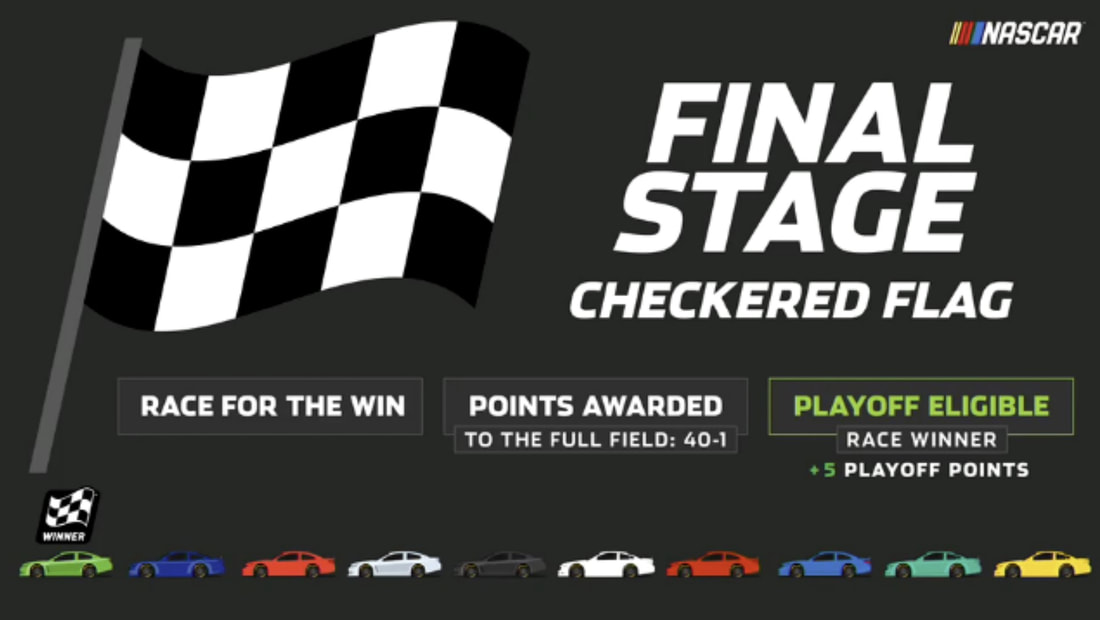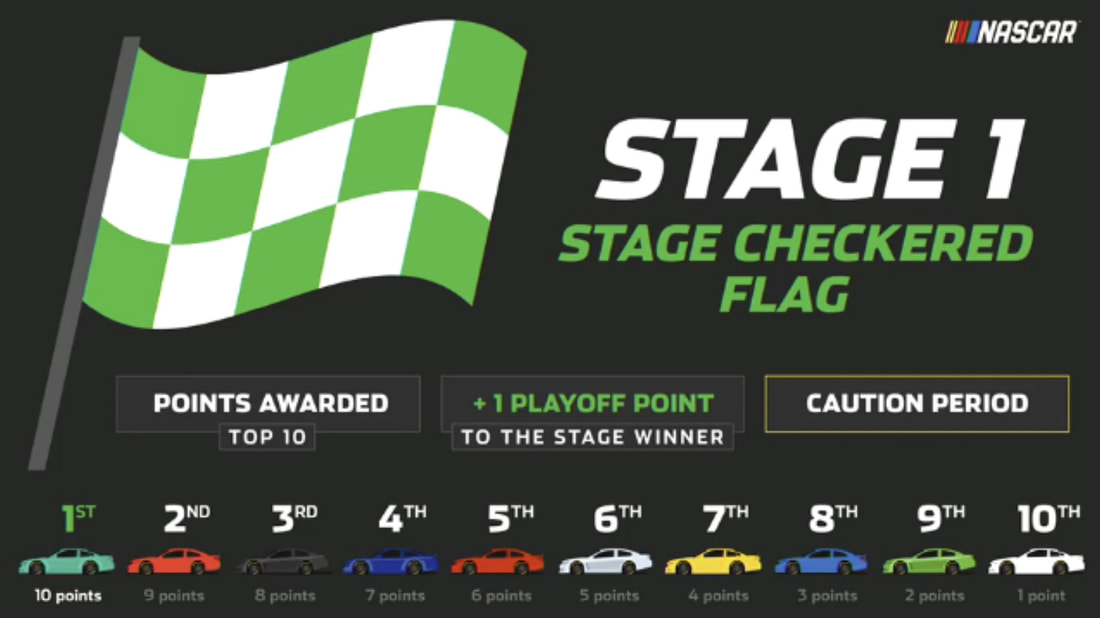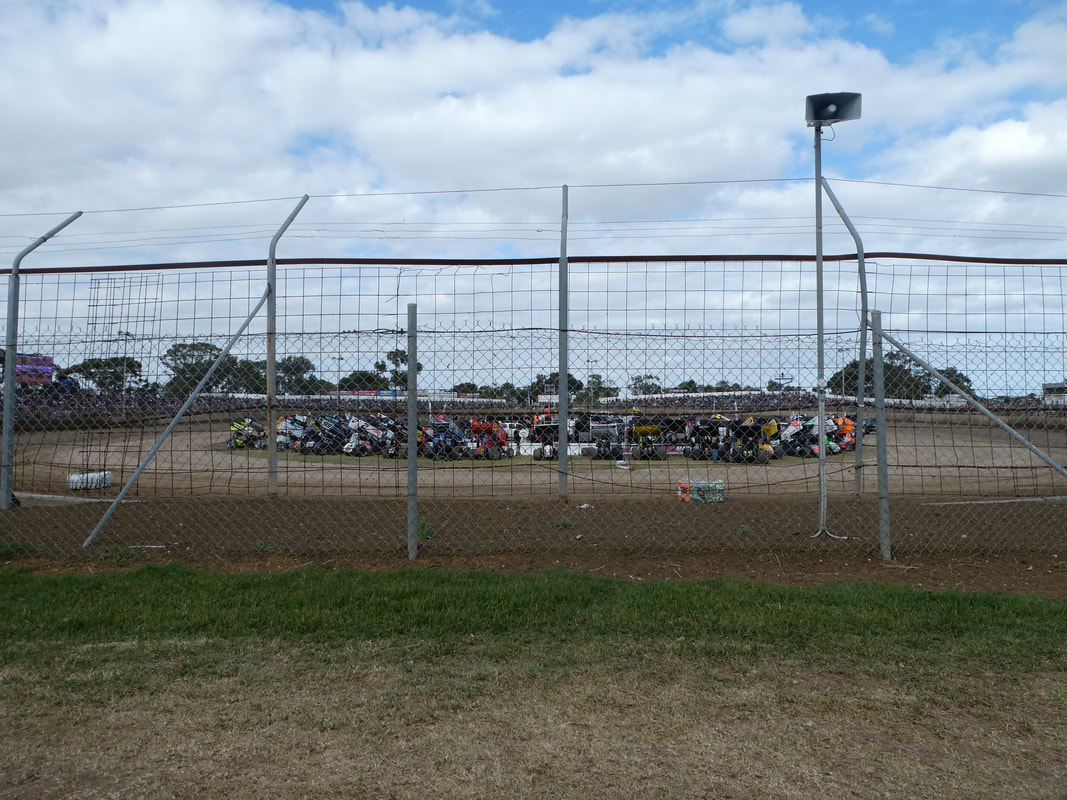|
NASCAR is a unique form of top-level auto racing. Their schedule mainly consists of oval racetracks, varying from short tracks like Bristol and Martinsville, to the Super Speedways of Daytona and Talladega. They certainly are a unique spectacle to watch, a pack of 40 cars, dicing among each other, using strategy and the draft to work with others and get to the front. Or bumping and grinding their way through the field, depending on the type of racing the different track provides. Also, NASCAR is known to be a bit lenient when it comes to contact. NASCAR is known as being a bit like Ice Hockey in the fact the being rough is encouraged, and drivers will do whatever it takes, even punting their rivals off to take victory or simply show their displeasure. This year, NASCAR has introduced a next gen car, and it looks like they’ve hit the nail on the head with it. With 14 different winners across 23 points paying races so far just shows how competitive this new car is, and it has provided some great racing too! However, this exciting form of motorsport has its issues, which not only has reduced its popularity, but also tarnish the legitimacy of its sport aspect. A championship sport is about finding the best players and teams during a certain amount of time, what we call a season. Sports like AFL, NBA and NFL have their standard games, then the top teams go into a knockout system to decide who will play each other to become the premiers. This system works in normal sports because 1) it gathers more viewing for the final games of the season, whilst the legitimacy of who wins the title remains intact. Sometimes teams unexpected to go all the way in the finals do, taking advantage of the reset to take it all. However, this doesn’t happen very often, games are very straightforward, and there a few factors that teams and players can’t control during a game. And when the unthinkable does happen, it is still well deserved, unexpected and entertaining. However, this playoff like format doesn’t work when deciding the champion in motorsport. For one, motorsport is much more unpredictable. There are so many factors out of the teams and driver’s control; the weather, safety cars and strategy being undone, ending up in someone else’s accident, mechanical failure and just bizarre occurrences to name a few. Races can change in a flash, and often they do. The best team with the fastest car and best driver doesn’t always win the race. The winner can often be decided by sheer luck, or whoever makes the best of the crazy circumstances. That’s what makes motorsport to me and many others I’m sure, a very exciting sport. That’s why you need multiple races, on varying tracks, across many months to determine the overall fastest, most consistent team and driver. When you reset the championship, once or even multiple times, any buffer that a team and driver has created is dashed and previous races pretty much become meaningless. Yet that is exactly what NASCAR has done with their ‘Playoffs Format’. After the first 28 races, the number of drivers eligible for the Championship is automatically brought down to 16. To get the top 16, all you must do is win one of the first 28 races, that’s it. Doesn’t matter if you have a horrible season, you’re in. If there aren’t 16 different winners, then the final places are deciding by points. Three races after that, the number is reduced to 12. If you were part of the top 16 and won one of those three races, you immediately go forward to the top 12, again despite your results for the other races. The final spots are governed by points across just those three races. This repeats when the number is dropped down to 8 drivers, and then the final 4. Whoever finishes highest in the final race of the season wins the championship. Sound confusing and overcomplicated? You bet! Let me now give you an example of why this doesn’t work and eats away at the legitimacy of who becomes champion. In 2020, Kevin Harvick had a fantastic season. 9 Wins, 20 top fives, 27 top tens and the best average finish of anybody. Comparing his season to previous NASCAR champions back when they were decided just by points, Harvick’s season would have resulted in him being undisputed champion. In fact, he would have clinched the title with three races remaining! However, during the Top 8, he had two poor races, which happens. However, despite his dominance in 2020, he wouldn’t even be eligible to go for the championship in the final race. In short, the best driver and team of the season had all their hard work robbed due to this system. But this hasn’t happened once, no, let me give you some more examples. Thanks to the Playoffs, Kyle Busch was crowned the 2015 Cup Series champion, despite missing 11 races due to injury! That is absurd not just by NASCAR standards, but world sport standards. Again in 2011, Carl Edwards had an extremely consistent season. Despite only a single win that season, he finished in the top five 19 times and the top ten 26 times. This was a time when the ‘Chase for the championship’ was in place. After the first 26 races, only the top ten would be eligible to win the championship, and all their points would be reset. Despite having the best overall season out of anyone, Carl Edwards didn’t clinch the championship this time either. Tony Stewart, who had an awful first 26 races, only just scraping into the top ten was quoted saying “If we make it to The Chase, we’re just taking that spot away from someone who deserves it.” However, in the final ten races, Tony Stewart would win five races, to only just tie with the consistent Edwards. Stewart would be awarded the championship because of his more race wins, and that whole buffer that Carl Edwards had created during most of the season before the Chase, was deemed irrelevant in favour of NASCAR’s silly system. The only reason Stewart ‘won’ that championship was due to the points reset after Race 26, otherwise he would have had no chance. The point of the NASCAR Playoffs is making the championship race unpredictable. It is designed to create exciting moments in motorsport. However, these supposed ‘tight championships and random occurrences cease to be special if they a manufactured by the sport. They are no longer unbelievable moments in auto racing or tight championship fights because they happen all the time. Classic championship battles like 1992 are special because no one could script it. They only happen once. If the nature of motorsport is left to its own devices, not every championship battle will be exciting, but the ones that are will be even more special. This is what NASCAR forgets and has ignored. This problem is further expanded when you look at how NASCAR runs its races. Races are split into three stages (except the Coca Cola 600, which is split into four). The first two stages are a quarter of the race in length, whilst the final stage is approximately half the racing in length. Once each stage is finished, points are given out to the top 10 at that time. That isn’t the problem though, the issue comes with the yellow flag being flown at the end of every stage! This ruins the flow of the race and makes strategy less of a factor since teams know when there will be caution periods. Motorsport is unpredictable, and again manufacturing when the field will be bunched up, and when teams will pit again is unnatural, and makes the racing repetitive. The point of having a championship across many different weekends, across many different tracks is that you don’t know what you’ll get. With these stages, you most likely know how the structure of the race will pan out. You can’t script motorsport, yet that is exactly what NASCAR has tried to do. The other big issue with NASCAR is not one that they can necessarily solve. SlapShoes sums it up perfectly in his video ‘NASCAR’s Short Track Problem’, but I will try my best to convey the main points, however I do very much suggest watching his video. Majority of NASCAR fans want to see more short tracks and that makes sense. NASCAR’s heart and soul lies in small towns in middle class America. However, during the nineties, small towns were going downhill. Many manufacturing plants were closed or moved, leaving people jobless. These people moved to service industry jobs with less pay, or moved to the cities for opportunities. Parallel to this, NASCAR built many tracks near big cities and jacked up ticket prices. Although the nineties and early 2000’s was lightning in a bottle for NASCAR’s popularity, the downward spiral of the economy soon caught up with them and all other American sports. The poorer got poorer, and the middle class that made up most of NASCAR’s fanbase diminished massively. The short tracks that remain on the schedule are all now fighting for the same area of people. And now, these people just can’t afford to go to multiple NASCAR races in their area, let alone travel and go to multiple races each year. This isn’t NASCAR’s problem however, this is an American problem, and NASCAR along with all other major sporting leagues are suffering whilst being unable to do anything about it.
However, NASCAR can be the farmer that prays for rain and then prepares for it. They can fix their own problems. Return to classic uncomplicated racing, let the heart in mouth battles and storylines occur naturally, just as every other form of Motorsport does, and also make sure to increase its presence on social media and in marketing, just like Formula 1 has done and to great success. Keeping the fans they have, whilst also bringing in new ones. I want to be excited by NASCAR, because it is a special and unique form of motorsport. It is full of perplexing drivers, teams and owners, and its history is the stuff of legends. NASCAR need to realise that they cannot manufacture the exceptional. All they need to do is let it happen, let it script itself and make sure that there are plenty of people who witness it.
0 Comments
Leave a Reply. |






